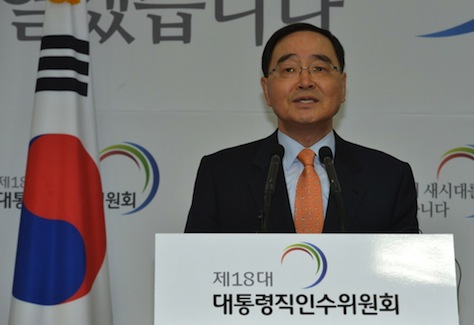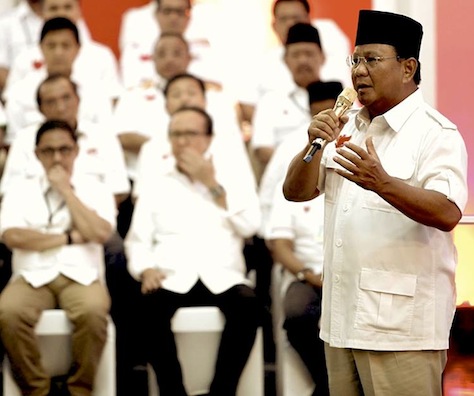Six weeks after the horrific ferry accident in South Korea that killed 300 people, and following two failed attempts to find a new prime minister, president Park Geun-hye (박근혜) has decided to retain Chung Hong-won (정홍원) after all.![]()
Chung (pictured above) previously announced his resignation as prime minister on April 27, taking responsibility for the government’s performance in the aftermath of the Sewol ferry disaster, with the intention of stepping down as soon as Park could appoint a successor.
But along the way, Park ran into trouble.
Her first nominee, Ahn Dae-hee (안대희), a longtime state prosecutor and a former South Korean supreme court justice appointed by the late former president Roh Moo-hyun in 2006, was nominated on May 22.
But Ahn (pictured above) withdrew a week later on ethics concerns over the massive amount of money he earned in the months after leaving the supreme court.
Her second nominee, Moon Chang-keuk (문창극), a former journalist and former editor of Joongang Daily, withdrew from consideration on June 24, after making comments at a church that Japanese colonization of Korea between 1910 and 1945 was God’s will, something of a controversial statement where Korean-Japan relations in the early 20th century still cause tensions.
It didn’t help that many South Koreans felt Moon (pictured above) was unqualified to be prime minister, nor that Moon had often expressed nostalgic admiration for the regime of Park’s authoritarian father, Park Chung-hee (박정희), who ruled South Korea from 1961 to 1979.
Neither candidate even made it to a vote in the National Assembly (대한민국 국회).
Accordingly, in exasperation, Park announced late last week that she will retain Chung, a novel approach that has the benefit of giving South Korea a permanent government for the first time in six weeks, and it clears the way for the confirmation hearings of nine additional cabinet members. Continue reading After two failed efforts, Park turns back to Chung Hong-won as PM



